Venezuelans Set Out to Cross the Continent on Foot
Crossing the border to Colombia, then to Ecuador or Peru is a long, painful journey even if all they carry is a backpack. Venezuelan migrants find some help in Colombian cities, but tiredness, cold and hunger are constant companions.


Photo: Dylan Baddour
LA LAGUNA, Colombia.- As darkness falls in the cold Colombian highlands, about two dozen Venezuelans settle into the nooks and corners of buildings that line the highway in this rural mountain town, seeking shelter from the nighttime wind.
They spent the last two days climbing these mountains, by walking or hitching a ride. In the morning they plan to cross the barren páramo that lies before them at more than 3,000 meters above sea level. After that, they mean to continue for 1,000 kilometers to Ecuador or Peru.
“We had to leave Venezuela, there wasn’t an option,” said Darwin Perez, 17, as he huddled wrapped in a bed sheet, shivering beside a group of his neighbors from Maracay. “We do this so that we can live and support our families.”
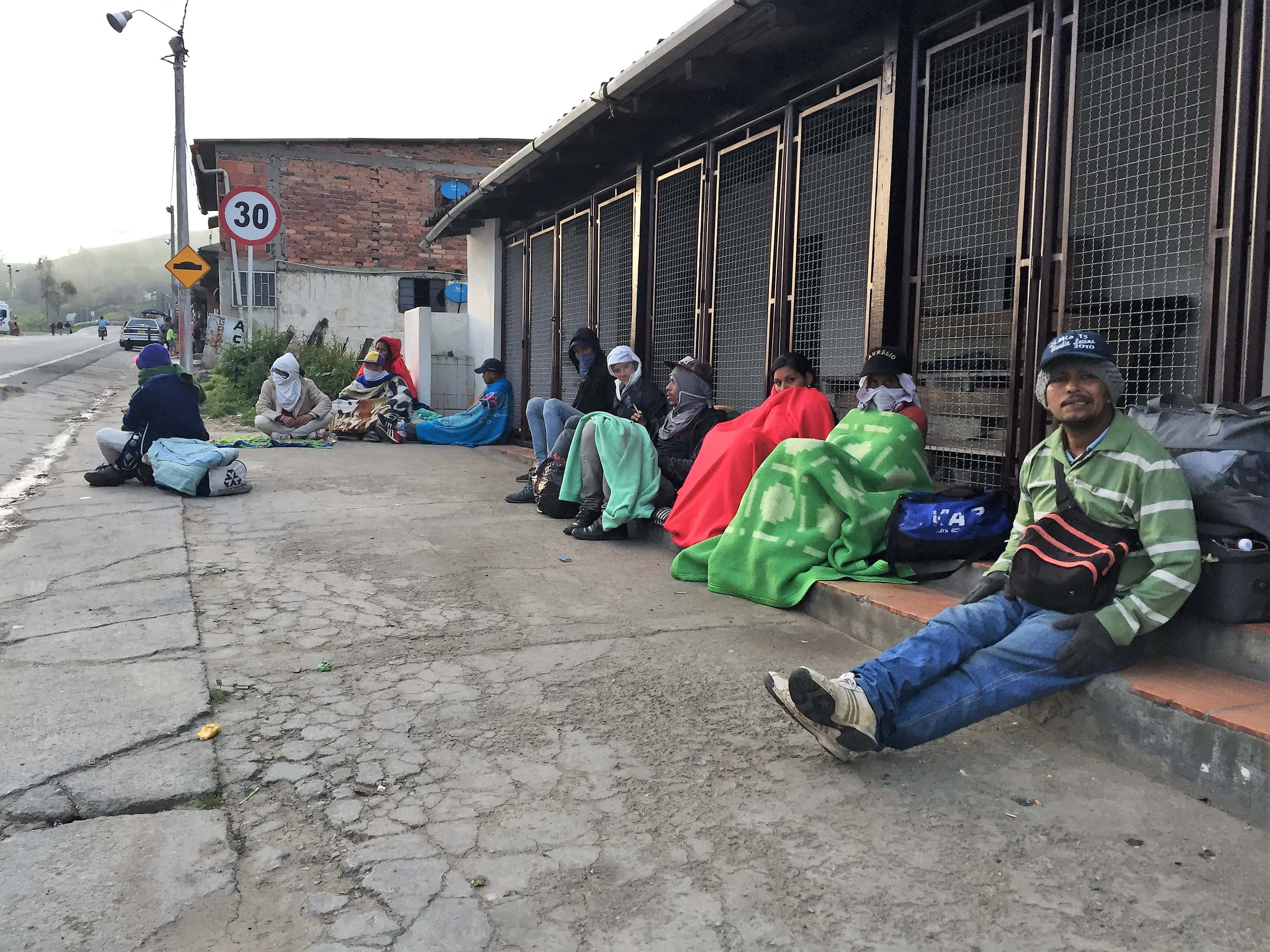 “We had to leave Venezuela, there wasn’t an option,” said Darwin Perez, 17.
“We had to leave Venezuela, there wasn’t an option,” said Darwin Perez, 17.
Locals in La Laguna describe the same scene every night. These Venezuelans are part of a growing trickle of migrants who arrive in Colombia without a peso, determined to cross the continent on foot.
South American countries are already struggling to get a grip on the overwhelming tide of Venezuelan migration. The emergence of large groups of people traveling undocumented by foot will further challenge their attempts to impose order, and signals a deepening of the desperation for Venezuelans at home.
The Red Cross of Colombia counts between 100 and 150 Venezuelans coming over the mountains each Saturday and Sunday when it sets up a checkpoint to hand out aid packages to the walkers, said Diana Sánchez, a director with the Red Cross in Bucaramanga. Volunteers started the project in July when they noticed the large numbers arriving without transportation.
“Many people don’t know where they are going,” Sánchez said. “We’ve had cases where people come and ask how to get to Peru.”
Some are moving inland from the border zone, chased out of their meager jobs by the ever-growing mass of Venezuelans competing for work in that area. Roberto Acosta, a 50-year-old former security guard from Aragua, worked for three months selling water in the border city of Cucuta before he felt forced to move on.
He walked beside the road with a companion, Luis Ramírez, on their way to the Colombian coffee region for the harvest in November.
“Maybe there’s more opportunity to work there,” Acosta said.
Others on the road are mostly young adults or teenagers bound for cities in Ecuador, Peru and beyond. There, they hope to find a stable life and the means to support and eventually bring over their families back home.
One group of 13 had met in the sweltering tropical sun of Cucuta, then set out together up the mountains. Two nights later they were high enough that the Andean cold kept them from sleeping as they huddled wrapped in sheets and blankets. By 2:00 a.m. they gave up and decided to continue the march.
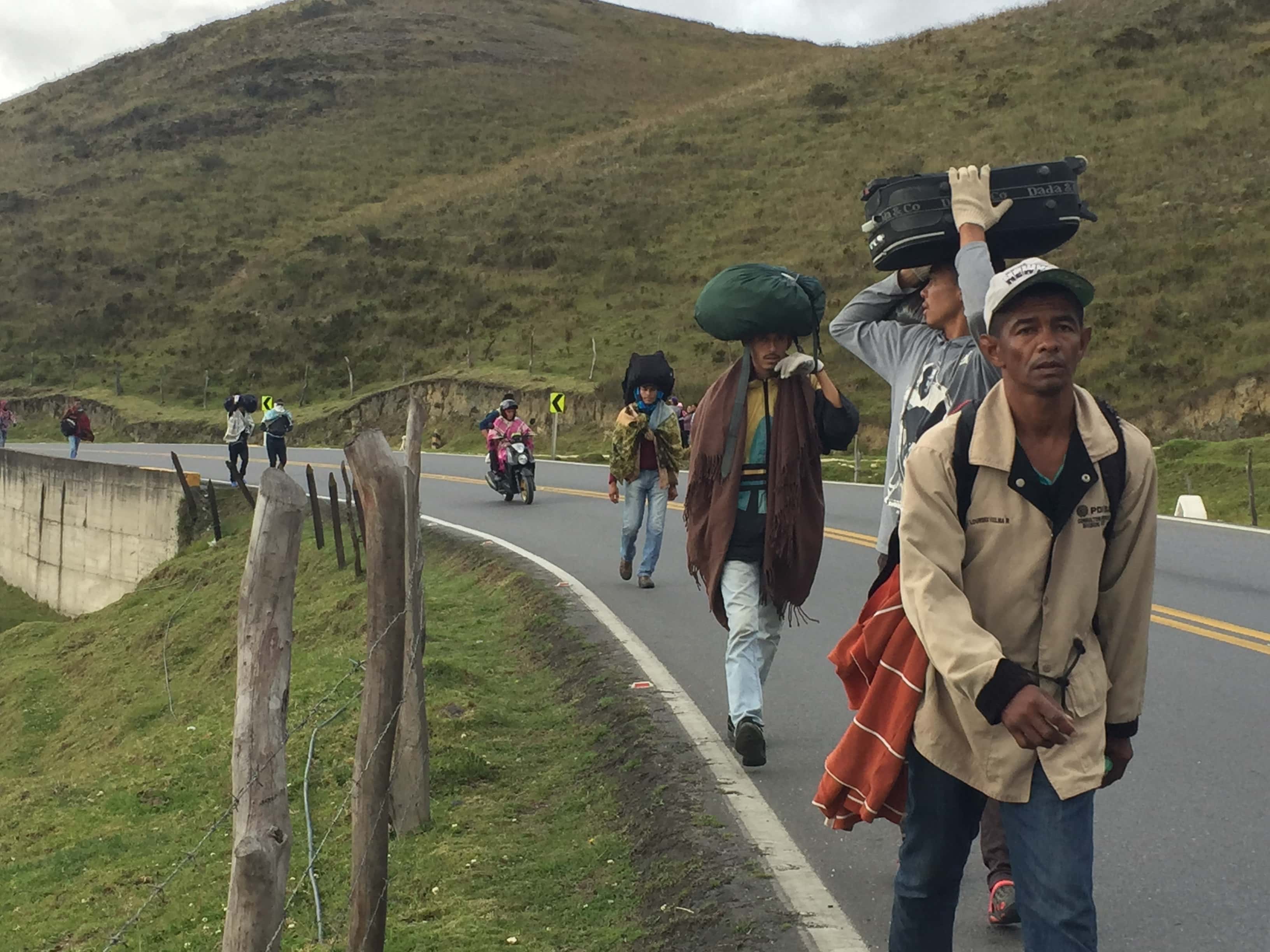 “Many people don’t know where they are going,” Sánchez said. “We’ve had cases where people come and ask how to get to Peru.”
“Many people don’t know where they are going,” Sánchez said. “We’ve had cases where people come and ask how to get to Peru.”
Fourteen hours later they were passing through the barren Colombian páramo in the late afternoon, hoping to make the descent down the other side before night brought back the cold.
“We’ve suffered hunger like you can’t imagine,” said Luis Lugo, a former mechanic from Zulia who was headed for Peru. They’d eaten only some bread that was donated to them along their way.
At 4:00 p.m., a pickup truck pulled over to offer a ride. The whole group came dashing from far down the road and piled in. It was their first ride in three days, and they sped down the roads towards destinations that were still many days ahead.
Down the other side of the mountains, dozens of Venezuelans camp in a public plaza near a fountain in the Colombian city of Bucaramanga. The place has been inhabited by migrants for about six months, the Red Cross said. Today, most spend a few days there to rest before continuing their journey.
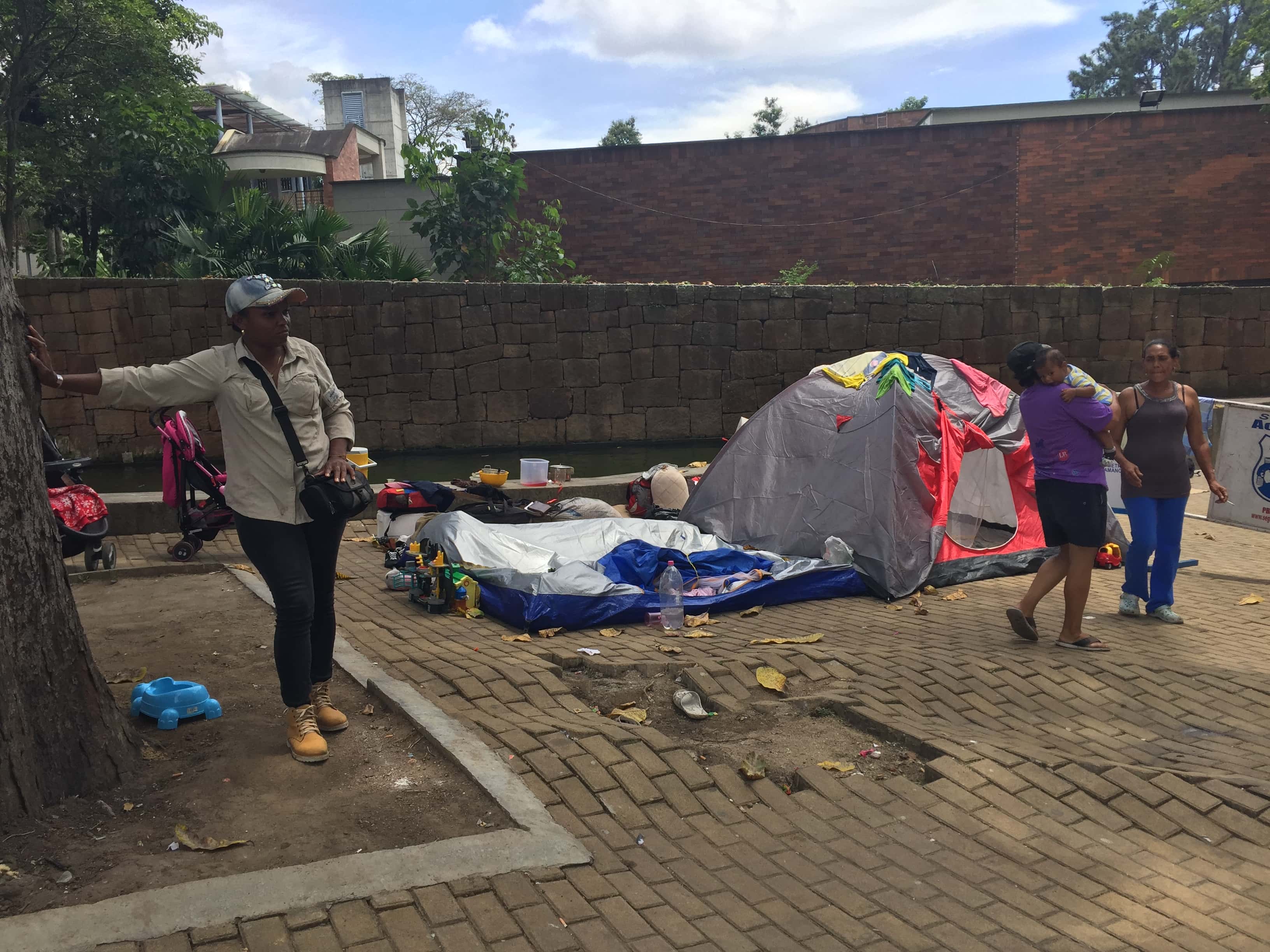 “We’ve suffered hunger like you can’t imagine,” said Luis Lugo, a former mechanic from Zulia who was headed for Peru.
“We’ve suffered hunger like you can’t imagine,” said Luis Lugo, a former mechanic from Zulia who was headed for Peru.
“My feet feel broken,” said Jesus Rujano, 27, a former bus driver from Puerto Cabello as he walked into the camp after coming down the mountains. “Up there we tried to sleep seated like chickens bunched together, but we couldn’t.”
Like the border zone, Bucaramanga has become too saturated with Venezuelans for new arrivals to find their own economic opportunity. So the migrants continue down the highway, back up the Andes to the highland city of Tunja.
Venezuelans arrive battered by their journey of up to a week, said Anny Uribe, director of the Refugio Espíritu Santo, a shelter for Venezuelan migrants there. She said she’d once had to help cut off a child’s shoe because blood off his feet had dried on the inside, and showed photos of a man with a blister the width of a tennis ball on his foot, which he got after he walked through the bottom of his shoe.
Up to 180 people sleep in the shelter each night, sometimes fitting three to a bed and filling the hallways. Guests in good health can stay two nights before continuing their journey.
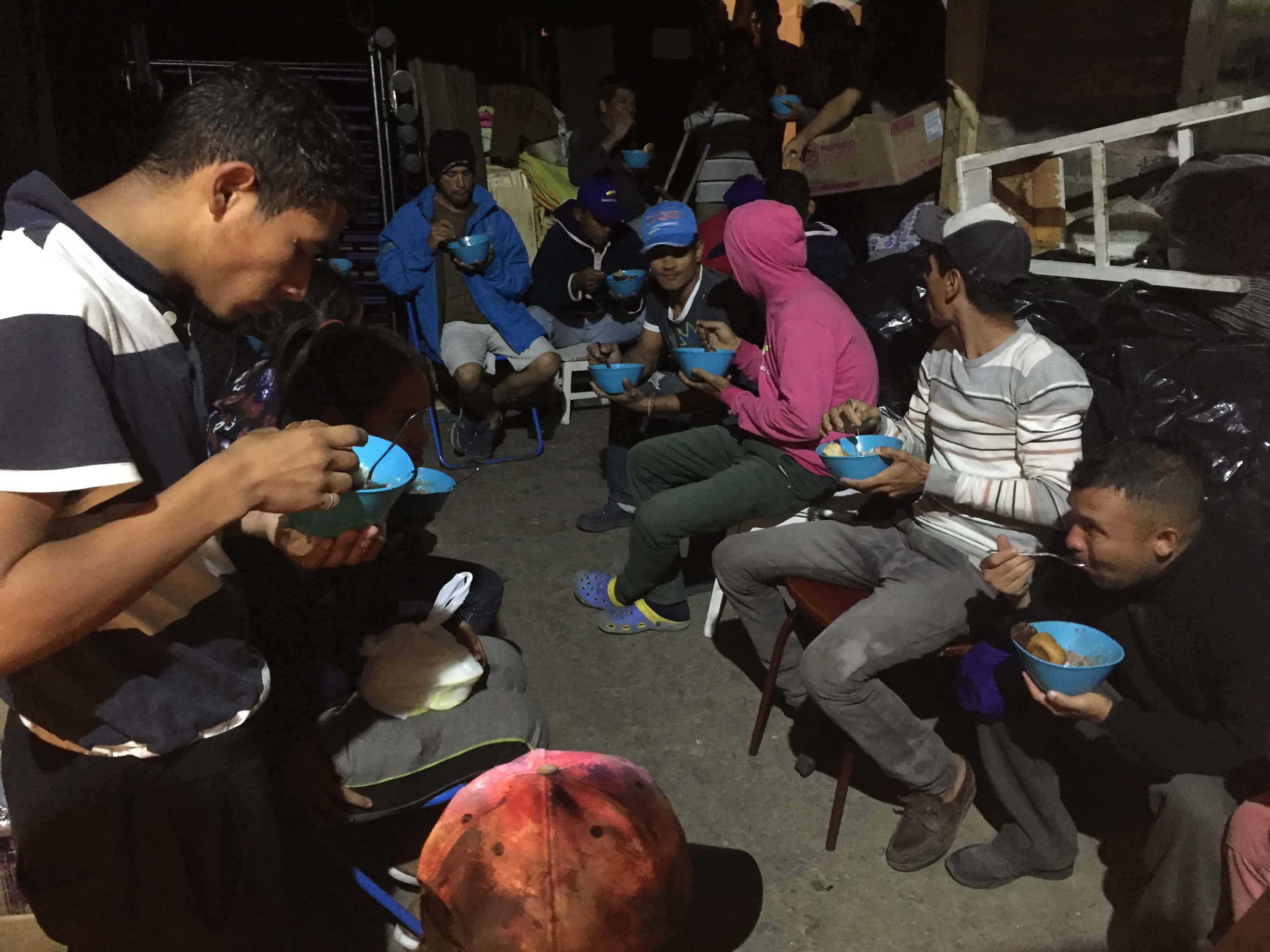 Up to 180 people sleep in the shelter each night, sometimes fitting three to a bed and filling the hallways.
Up to 180 people sleep in the shelter each night, sometimes fitting three to a bed and filling the hallways.
Uribe, a Venezuelan, opened the shelter in July after she noticed the growing number of her countrymen passing through on foot.
“The need was urgent,” she said. “Entire families were sleeping in the street with children.”
Charities including the Red Cross and Catholic groups have donated appliances, food and bunk beds.
Almost 3,000 people have passed through since she opened the shelter, Uribe said, flipping through a logbook of her guests, most saying they were headed to Ecuador or Peru.
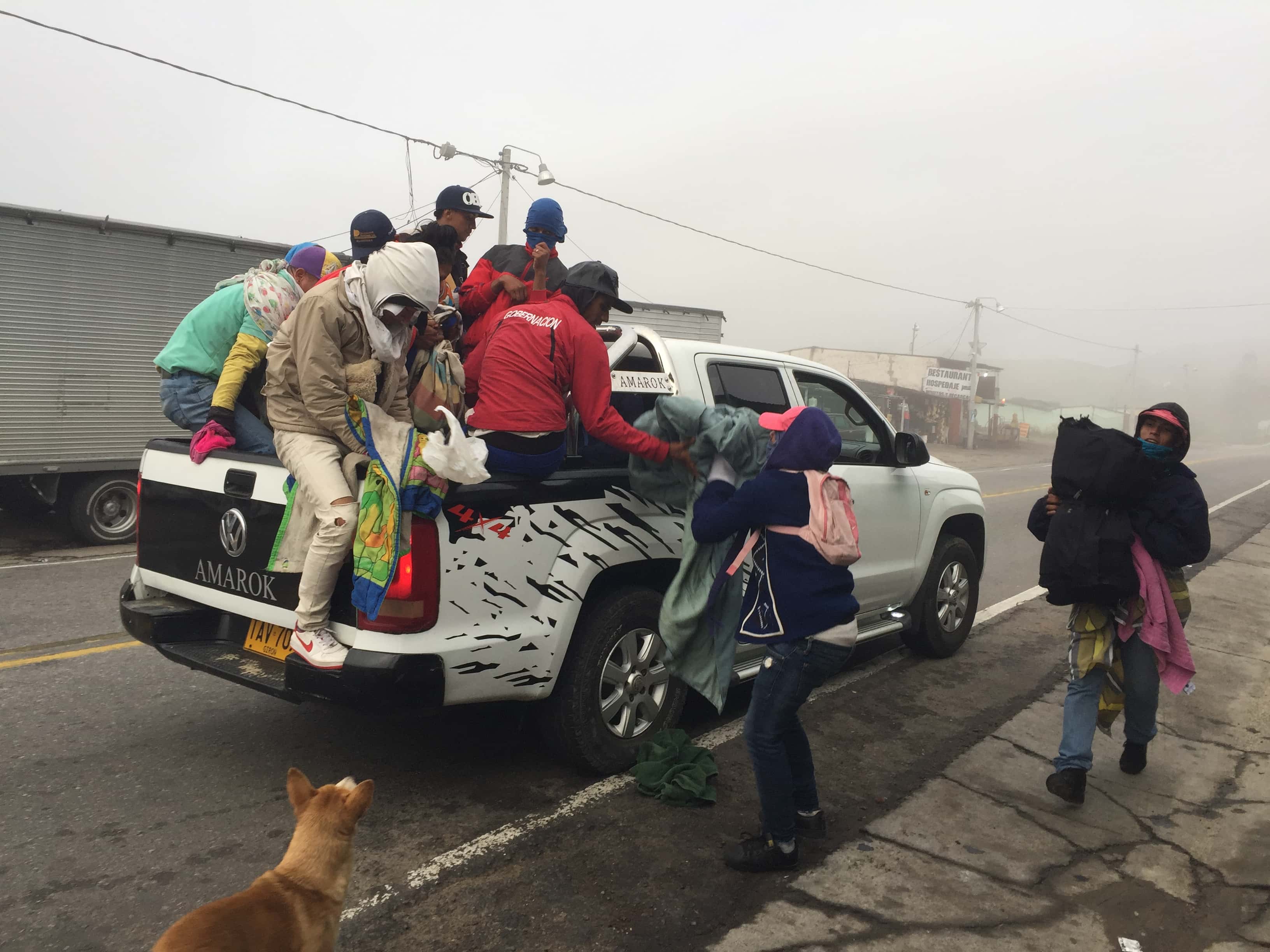 Saddled with backpacks, suitcases and duffel bags they marched about a half hour out of town to a highway, and talked about the dreams they left behind.
Saddled with backpacks, suitcases and duffel bags they marched about a half hour out of town to a highway, and talked about the dreams they left behind.
One afternoon at the shelter, a group of 11 young men, half of them under 21, packed up to leave. They’d been traveling five days together, had walked over the mountains, tried to sleep in the cold and ate what food they found donated along the way.
Saddled with backpacks, suitcases and duffel bags they marched about a half hour out of town to a highway, and talked about the dreams they left behind: to be an army officer or to work their family’s rural estate.
“I was going to be a pilot,” said 17-year-old Sandul Suárez. “But there’s no point in studying. The teachers don’t even show up to class.”
Never in their lives, the young men said, had they imagined they would leave their families to cross the continent on foot with nothing but a sack of clothes.
They stopped by the highway to thumb a ride, and in 15 minutes caught a big rig truck with a flatbed trailer. Almost panicked by the precious opportunity, they scurried onboard as fast as they could then headed down the road towards the new lives they sought.
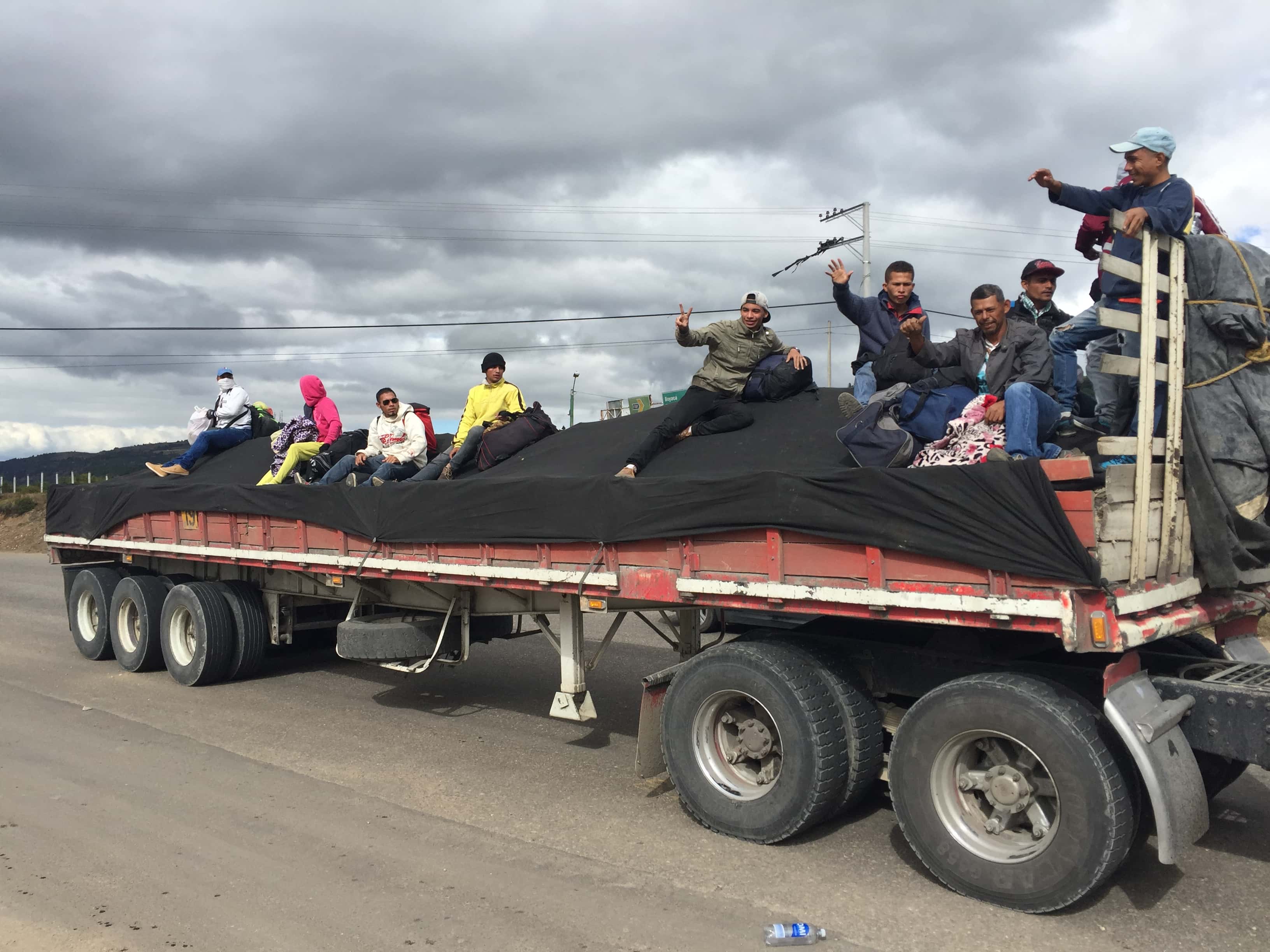 Never in their lives, the young men said, had they imagined they would leave their families to cross the continent on foot with nothing but a sack of clothes.
Never in their lives, the young men said, had they imagined they would leave their families to cross the continent on foot with nothing but a sack of clothes.
Follow Dylan Baddour on Twitter at
Caracas Chronicles is 100% reader-supported.
We’ve been able to hang on for 22 years in one of the craziest media landscapes in the world. We’ve seen different media outlets in Venezuela (and abroad) closing shop, something we’re looking to avoid at all costs. Your collaboration goes a long way in helping us weather the storm.
Donate




